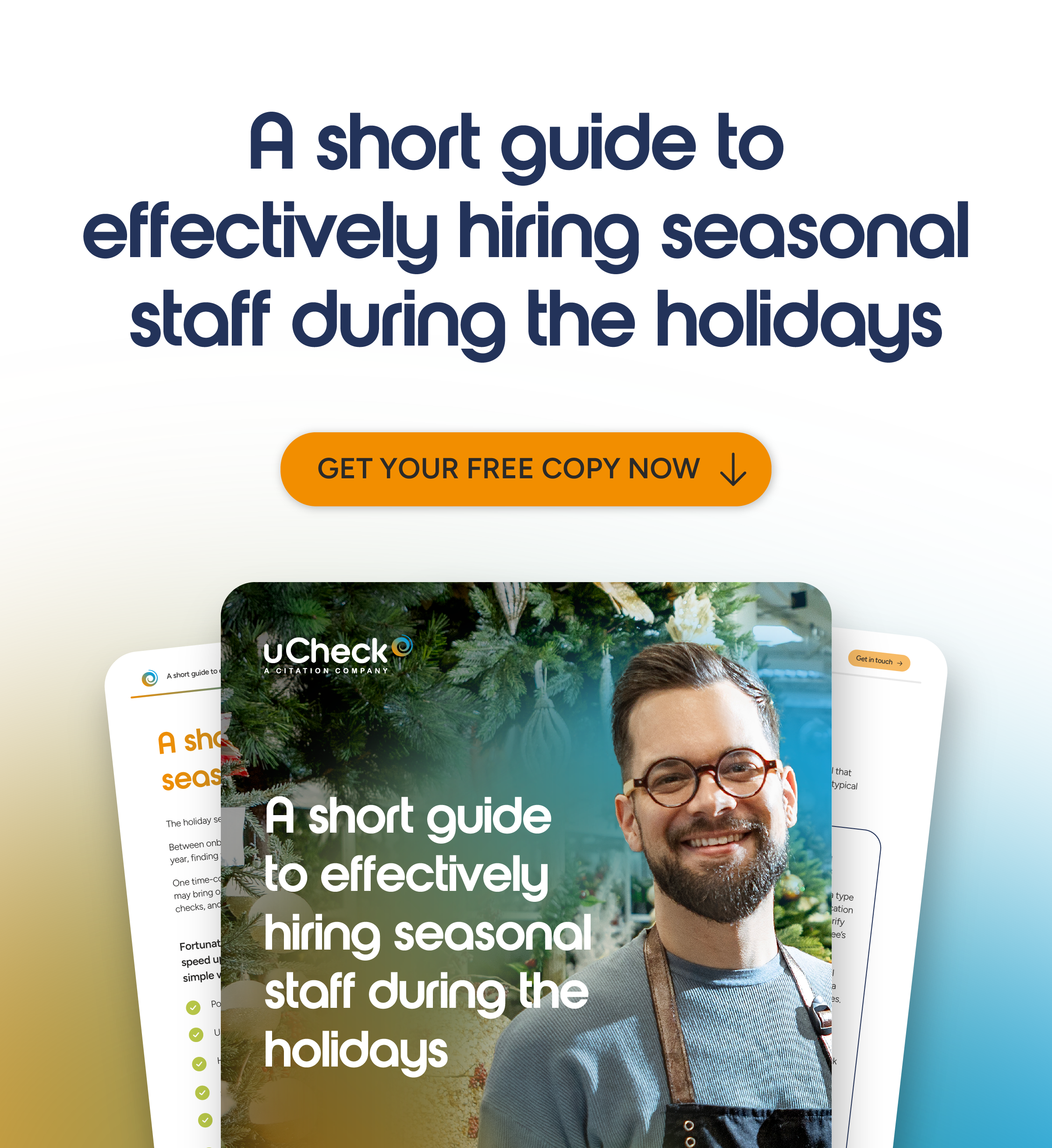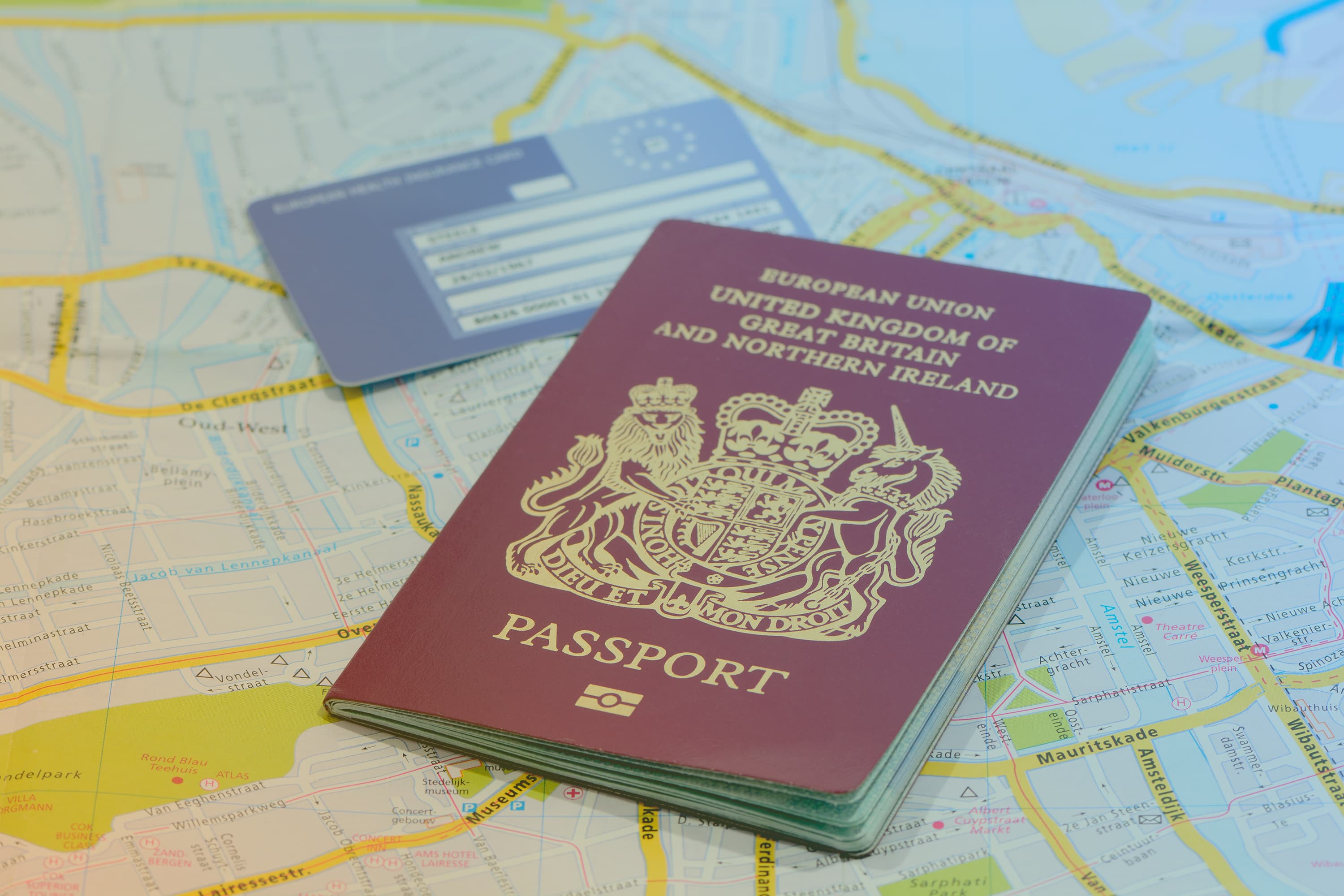Our new Digital Identity Verification service will remove the need to manually check applicants’ ID documents, for both DBS and Right to Work, saving both precious time and effort for your employees but also making it more convenient for your applicants.
We’re partnering with the Post Office’s EasyID and Yoti’s Digital ID services to enable identity documents to be verified quickly, remotely and securely via easy-to-use apps. You can find out more about these exciting new partnerships here.
On 9th March 2022 we held a webinar about the new service. You can download a copy of the webinar presentation here. We received lots of questions from clients, so we’ve gathered them all together into a handy Q&A.
You can also watch the webinar below:
uCheck Digital Identities webinar March 2022
If you still have questions after reading through the answers below, please don’t hesitate to get in touch with us – we’re only a phone call or email away!
Is Digital Identity mandatory?
Digital Identity Verification is not mandatory – the existing manual guidelines have been maintained.
Will uCheck charge for Digital Identity Checks?
Digital Identity Verification will be charged as an additional product on top of the DBS / Right to Work fee. All pricing will be released soon.
Will you provide instructions and guides on how this will work?
Yes, uCheck will provide all the required information.
Will you keep us updated about when changes are made to your systems?
Yes, uCheck will inform clients of any changes that are being made to the uCheck HR Platform.
Does this apply to new applicants only?
Digital Identity will be available for all applications that have not yet completed an ID verification.
Does all this apply to volunteers?
Yes, Digital Identity Verification can be used with all DBS applications.
Is there a charge for the EasyID and Yoti apps to the applicant?
No, both apps are completely free to download.
Is it safe to have all of this information on my phone?
The apps are built in such a way that only you can access your personal information. Your Digital ID is protected by multi-factor authentication. It’s linked to your phone, protected by a PIN that only you should know and uses facial recognition for added security. Data is encrypted and each piece of your data is stored separately using different codes. You’re the only person who can unlock these codes to see your information
Do we need to use Post Office EasyID as well as Yoti?
Good news – applicants can choose to use either the EasyID or Yoti app to verify their identity.
Does the applicant need to be an existing user of EasyID or Yoti?
No, the applicant can be a new or existing user of either app.
Will the Post Office do all this for applicants at the desk?
The Post Office does offer an In-Branch Verification service. uCheck will be investigating how we can roll this out to our entire client base.
How does the Post Office or Yoti app verify the address?
The app validates an applicant’s address by using either a UK driving licence or performing a Credit Reference Agency Check on the address the applicant enters. If it’s a visual check then one document can be used.
If the applicant uses the digital method, do we still have to input their driving licence number/passport number manually on our end?
As we are focusing on efficiency, during the Digital Identity verification process the driving licence number and the passport number are validated. These numbers will be returned to the uCheck HR Platform and hence these details no longer need to be entered.
Does the applicant need both a computer and a phone at the same time?
If the applicant submits their information via desktop, they will be required to use their smartphone to scan the QR code presented on screen. However, the applicant can also complete the whole process on a smartphone.
Does the applicant have to duplicate their address info etc. on both uCheck and their chosen app?
Yes, there will then be a verification process in the HR Platform to ensure the same person completed the application and the Digital Identity Verification.
If we forget to click ‘Digital Identity Check’ when processing a DBS Check, can we go back and add this in, or do we have to redo that application?
We are working to implement this functionality, so you will be able to retrospectively request that applicants verify their identity digitally.
If an applicant disables the Digital ID Check, would the ID check need to take place physically or via video call?
Yes, if an applicant opts out of Digital Identity you must revert to the standard manual processes.
If we use another IDSP to verify Right to Work / ID /address history, will this be accepted by uCheck to complete a DBS application?
We can only use IDSPs that we have agreed to partner with initially, but we will be looking to expand the number of IDSPs that we can accept. Please contact us for more information on this.
Can you conduct an ID check only, without processing a DBS Check?
Not currently via the uCheck HR Platform, but we are listening to client requirements on this point. However, applicants can verify their digital identity directly through the Post Office EasyID app and through the Yoti app.
What address would students use – their home address or university address?
Students will need to use their valid registered address that can be validated by either their UK driving licence or a Credit Reference Agency Check. We therefore recommend they use the address linked to their bank account, or the address shown on their driving licence, if they have one.
Will we be able to use downloadable bank statements and utility bills to verify the address of an applicant through the EasyID system?
No, you will only be able to use a valid UK driving licence or manually enter your address for a Credit Reference Agency Check.
Will driving licences that don’t contain the full legal name work?
These will not match the applicant’s information and therefore will not be valid for a DBS Check.
What other kinds of ID documents can be uploaded on the Digital ID apps?
The main documents that can be used in the Digital ID app to meet the Government standards are passport and driving licence. If a candidate only has one document, we use backend data sources to verify the ID.
What if an applicant does not have the required documents to meet the confidence levels?
If the applicant does not have the required documents, they must use the manual ID checking process.
Will there be a way of verifying an applicant’s identity digitally if they do not have a passport or driving licence?
They may not be able to complete a Digital Identity Check – however, you will still be able to use the manual ID routes to verify the applicant’s identity as you currently do.
Are we able to get copies of the documents that have been verified?
You will be able to for Right to Work Checks as these are still required, but these are not required for DBS Checks.
Can you still do manual checks on biometric residence permits for Right to Work?
Yes, for now up until 6th April 2022. After this applicants will need to provide you with their online share code to evidence their RTW, as BRPs will no longer form part of the acceptable documents list.
From 30th September, do Right to Work Checks have to be completed via Digital Identity Verification rather than showing the documents via a video call?
The temporary guidelines that are currently in place allowing you to show documents via video call will be removed from 30th September 2022. From this date, documents can be verified in person or by using Digital Identity (for UK Passport and Irish Passport/Card holders only). uCheck will support Digital Identities in Phase 2 of their Digital Identity rollout.
Will a Digital Identity Check provide a statutory excuse for Right to Work?
Digital Identity can be used to obtain a statutory excuse for Right to Work providing the documents are British and Irish Passports/Cards.







